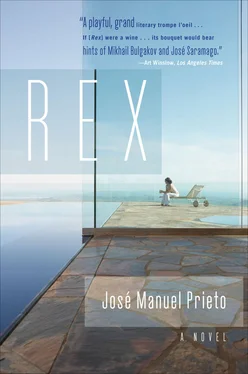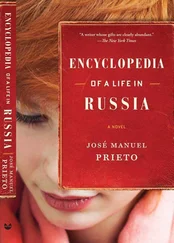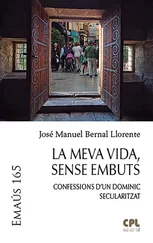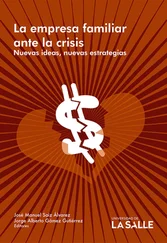And nothing about swimming pools, either.
The very large and beautiful one in your garden, its notches of light, the submerged flank of an enormous blue fish, the scales suggested by the illuminated semicircles that crossed and segmented its whole belly, breathing down below. None of that anywhere in the Writer. How, then, to comment on it? Certain things, certain visions of the days?
I stretched out the edges, my fingers pressing down hard on the polyvinyl (not that either!), running to some distant place, some province in the vast empire of the Book from which to fetch back, copied out on my pupils, a fragment about the sparkle of the sea on the awnings of Balbec. I placed it carefully against the gap of the pool, trying to convince the boy, managing at times to bring together the jagged edges of the opening, without ever covering it entirely.
And through the uncovered holes it continued to rise, I observed as if hypnotized by the (new?) effect of the light from below. He hadn’t seen it? There were no pools in that house near Balbec that belonged to the Verdurins? The water of a pond, a hollow amid the reefs, didn’t produce the same effect? Or was it only visible if one is strolling in a swimsuit alongside one of those California swimming pools (or one as large as the pools in California), probing the water with a thumb, breaking through the golden scales that cover the back of the animal, the enormous pike down below?
I raised my eyes, assailed by the unease of a teacher who hasn’t spent much time preparing the class and faces the children’s expectant faces knowing that he will lie to them without allowing a shadow of doubt to cross his face, wringing out the text to a maximum degree like a fraudulent exegete. I plunged in and began to swim, breaking up handfuls of the surface’s changing prisms with the fury of a man silencing voices of discontent in the mayhem of a saloon, distributing blows with flailing arms and absolute perfidy. Now the light no longer found that smooth surface on which to refract: only my back. An opaque medium swimming obstinately from one end to the other, swift as a shuttle, roiling the waters. To keep anyone from glimpsing the dimensions of the gap, as large in the text as a swimming pool in the ground.
2
Or the way the Writer encourages us at a moment of equal bewilderment and discouragement. Onward, dear reader! Who has ever said that there can be no true, faithful, and eternal love in the world, that such a thing does not exist? May that liar’s tongue be cut out!
Full of life at that moment, bursting with submission and devotion to her, ready to leap to my feet and do battle. Agreeing fully with the Writer that in any work one part must serve others, that a palace must have passageways. Very well, but through this passageway at a gallop: high and wide, two men on horseback can pass, or myself and your parents, our capes fluttering in the wind. Beneath chapters in which nothing happened, long strings of pages in which time seemed to have stopped, to emerge into fur-strewn salons, castles at the edge of the sea, the thronging banquet in the perfumed garden through which all the characters in the story move (and dance).
Following, in this, I commented to the boy, the Writer, who starts a party on the 1,001st page of the Book, where he reunites all his characters (and all the plotlines! And all the plotlines). The great final chords of a nineteenth-century symphony, no less thrilling for being long-awaited. A party to which we would invite Simon of Bulgaria, Leka of Albania, Duarte of Braganza, all the crownless monarchs who, for some obscure reason, chose Spain as their place of refuge.
Though not really so obscure: didn’t Spain exert a magnetic attraction on them, Madrid, the unparalleled example of the Spanish royal house with its affable king? They would be able to recognize and understand our plan in a second, they would take the book for the Book. The volume in quarto that all the kings of Europe would receive at Yuletide, sent from Russia, and which they would open by placing a jeweled index finger (that of Harold of Norway) beneath its cover of gold, silver, and marble. And he would sit down to read it, instantly forgetting the ambassador of Grenada, the chancellor of Laos, allowing the full and reasonable meaning of the Book to enter in through his eyes, a text that requires no commentators, no false scholars heaping up commentaries at its mouth like gangs of miners. Its readers able to interpret any passage without strain, no need for any gloss to aid the comprehension of those for whom the real possibility of the new royal house of Russia would be obvious, clear, and feasible.
For the difficult passages, which the Book certainly does contain, are not necessary to an understanding of the message in its entirety, and furthermore I’m here to explain them to you, Petya. For example, at one point in volume 3 the Writer says Princess Demidoff. And this is a mistake (though a minor one, certainly), just the type of mistake we must avoid: this name has never existed, there has never been a Russian house that ended with that double f , a thing that would take aback any even slightly knowledgeable adult, a professor of Russian who, putting on his thick plastic glasses (nails stained with nicotine), about to leave for his class at the Mendeleev Institute (that family name, yes, in Moscow), would give a start of indignation: no such family exists; never have there been, in the nineteenth century nor at any other point, any Demidoffs, etcetera. The base and pretext for an exhaustive and ill-timed survey of the history of heraldry.
No genetic analysis either to decant with great finesse between a Trubetskoi and a Romanov, or between a Kuropatov (Vasily’s own family name) and a Romanov. This many X s on that back (tattooed there by fire) and this many here: the numbers don’t coincide! We would steer around those reefs into a world without the sharp-edged crags of physical resemblance, an old lady, a Romanov, who would howl, poking her bejeweled finger into his chest: It isn’t him! We would condense seas, we would conjure up vessels, we would imagine reaching land without our minds projecting the crag of DNA onto the physical world for one second.
Only the Writer’s enameled prose, his Versace prose. Functioning in all brains, entering into all ears, bearing to all central nervous systems the order required for the reorganization of their internal structure: to believe us. A prose adorned with veers and curlicues, an art nouveau prose, organic, vegetal, gleaming.
3
But here’s another apparent triumph and another apparent truth of the Commentator, Petya: the conduct of the travelers in the train that took me to Madrid. The commentaries a young woman was delivering while continually looking out the window. The words she repeated again and again, the way she pursed her lips, rolled her eyes and said: “Can you imagine? She said to me. And I said to her.” Indefatigably. An argument from the day before that was able to nourish a commentary many kilometers long, the changing landscape, the first houses at the outskirts of Madrid, a hillside covered with hideous multifamily housing units and her words, her commentary, still flowing from between her pursed lips, a series of gestures representing the entire incident. How that woman had come over to her cubicle and had come out with it the moment she arrived: such and such a thing. And she, could her friend imagine, not knowing how to react, taken by surprise, the steaming cup of coffee at her lips.
But she’d thought about it and an instant later was able to come up with a response. She’d put down the cup without taking a sip (moving the little telephone away from her lips, from which I inferred the matter of the coffee cup) and shot back: “But who do you think you are?”
Читать дальше












